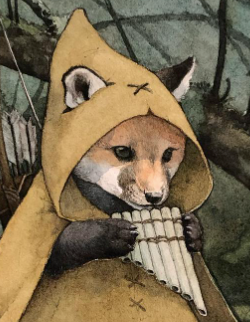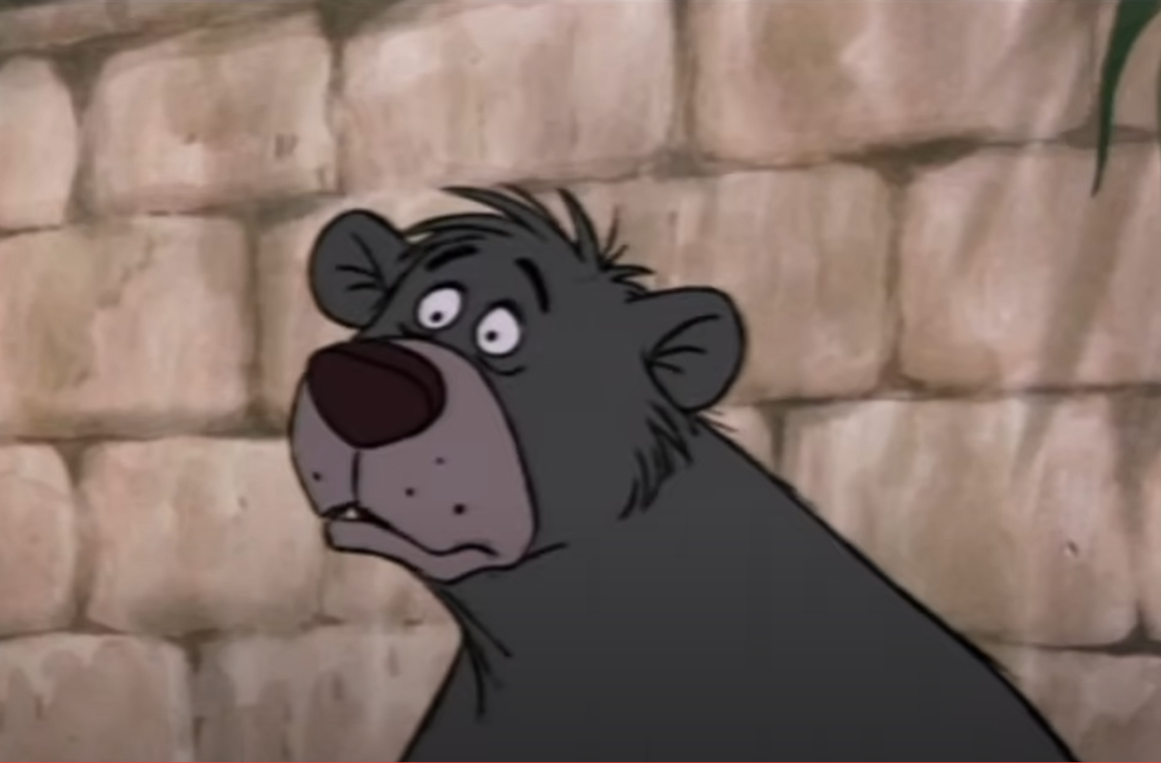Maybe we should subsidize the fake meat industry instead.
It kills me that hamburger is half the price of Beyond Burger
Because alot of the price of the real meat burger is paid with subsidies…
Just like oil,
The wheels on the bus go
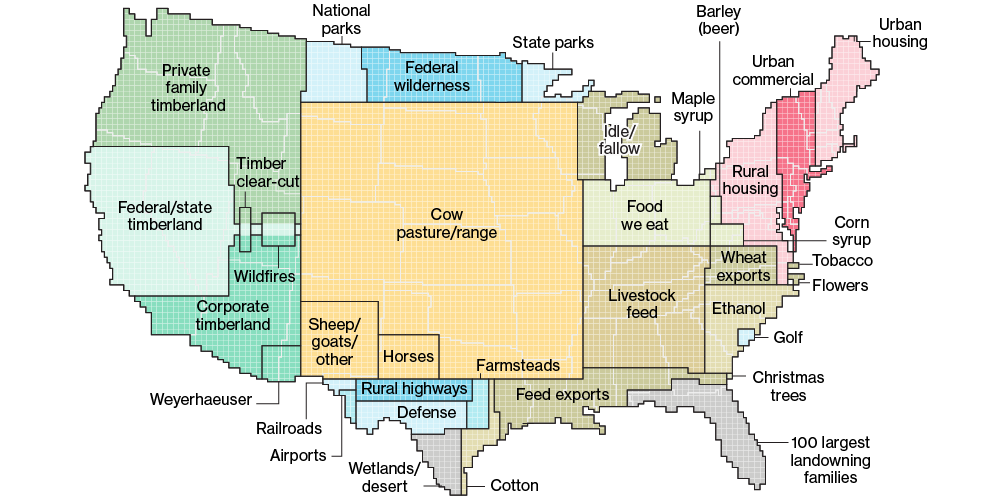
Hear ye hear ye. This is the actual visualization
Source:
seeing this all at once. its a lot. There is so much you can learn about the US just by looking at this. I hate it.
Not a single one of these sections is the correct size. Except maybe the maple syrup and the beer.
Replacing half of the cow pasture with (properly managed) timber would solve the worlds lumber shortage. I’d like to see more bamboo being grown. Its great for any buildings that are 4 stories or less. Or is it 3?
LOOK AT RURAL HIGHWAYS VERSUS TRAINS. FOR FUCKS SAKE.

tbf, a railroad is much more land efficient then highways so I’d expect that number to be pretty small no matter what. Though I suppose you could make the argument that the rural highways number should be zero, which is valid too.
I’m pretty annoyed they don’t have parking lots or suburbs in there. Why are “rural highways” called out, but not the millions of miles of sprawling suburban roads?
Actually I think rural highways are fine. In my ideal world every city and town is connected by two lane each way highways. The highways would be along side freight and passenger rail lines.
The problem, imo, is with all the 4 lane each way highways. Making all the highways 2 lane each way would probably reduce total land use by a lot. But I could be misinterpreting the map. Its not clear what “rural” highway means. It also doesn’t show total road usage. Extra road from sprawl is way worse than from rural highways. Poor town planning in the country also contributes. We should have villages instead of the weird clusterfuck of separated houses that are 2 hours by car from a hospital and 30 minutes from a grocery store.
Regardless it should be trains instead of trucks moving freight. In such a world I would imagine the train land usage would be around 1/3 of rural highways. In that map its about 1/9. Its less about the size of the rural highways and more about the size of the railways. If the USA didn’t tear up all their rail infrastructure in the early 1900s it’d probably be like that today.
I think personal cars will always be a part of country life. And thats ok. But they should have an accessible train for long distances. Between ambulances, firetrucks, disability transportation, various work vehicals, and isolated people, cars have important uses. And they need roads.
Literally the problem is just suburbia. 15 minute cities, 5 minute neighborhoods.
Sometimes I feel like dae le epic bacon treat defenders have a number of trenches to fall back to, where one dismisses animals’ right to life, another dismisses animal cruelty, another dismisses industrial waste and environmental damage, and the one behind that dismisses inefficient energy use and the waste of land and resources. Ultimately, all of it amounts to “don’t tell me what to do” with layers of decoration on top.
It’s ok if people don’t care about animals. No one is going to force you to eat meat. I promise. It’s also ok if we don’t use all land everywhere as efficiently as possible to grow the maximum amount of calories so that the earth can support the largest number of people possible. We can have a wealth of variety in our diets that include animal products and there is absolutely nothing wrong with that.
Have fun trying to stop climate change without reducing meat consumption, not to mention other problems like desertification and soil degradation.
The earth is an ecosystem with a metabolism, and humans take out of it way more than return, and with capitalism that isn’t going to change anytime soon.
You can go “sweetie, but meat tastes good!” all you want, not to mention your bizzarre comment on optimizing land usage for population growth. It’s not a question of morality - it’s a question of not being a fool.
That condescending “it’s okay” tone from that self-absorbed status quo championing treatbrain was Reddit-tier grating, too.

Not only that, but we’re talking about a country with some of the highest per-capita beef consumption in the world. Beef has an order of magnitude higher impact on emissions as other meats. It’s so fucking inefficient it’s insane.
I think it’s much easier to shift people to more efficient meats than it is to cut meat out entirely.
Easier yes, I suppose.
It’s still a half measure that will at best delay the worst effects of climate change (such as many other mainstream proposals to combat it) and there’s a difference between how radical the changes to society will be and whether climate change will be bad, very bad, very very bad or lead to Medieval death rates
No one is going to force you to eat meat. I promise.
Actually, that did happen while I lived with my immediate biological family in my formative years. You don’t speak for me. You don’t speak for anyone outside of your bubble world.
The planet’s getting cooked with escalating feedback loops that are furthered along by animal factory farming while hundreds of millions are already experiencing a slow gnawing mass starvation from terrible land management. The rain forests of Brazil, for example, are being destroyed methodically largely for the sake of more industrialized meat farming and to grow feed for that industrialized meat farming.
Meanwhile, bubble worlders like you keep expecting your meat treats in a timely and convenient matter. And with all that in mind, here you are condescendingly smugposting about the current status quo being “okay.”


Actually, that did happen while I lived with my immediate biological family in my formative years.
To say nothing of the fact that we’re forced to fund the torture and killing of animals in the form of federal beef subsidies. Or that in some cases institutionalized people (in prisons, asylums, etc.) are, in fact, made to eat meat and may very well be force-fed if they refuse to.
None of that matters if the treatbrain got theirs, thus the “no one is forcing you” condescending tone which is a fucking lie.
And carnists still have the nerve to act like they’re the aggrieved party every time they’re forced to remember we exist, lol. I can only imagine how they’d act if the positions were reversed and we were winning as hard as they are.
The world would be in better shape, there’d be a lot less pollution and suffering to living beings, and they may not even notice the difference because they wouldn’t be as used to shoveling down dae le epic Baconators.
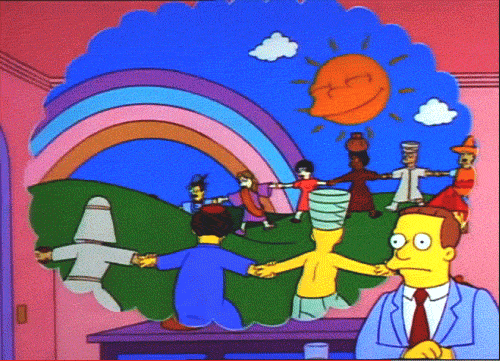
Removed by mod
Even for a strawman that’s particularly bad.
Yes as a child
You haven’t apparently emotionally developed past that point in any way that I can notice.
You’re a destructively selfish treatbrain that only wants changes that don’t directly inconvenience you in ways you can immediately conceive.
In the mean time, government action to stop fossil fuels are the only priority that matters.
You’re as ignorant as you are selfish.
https://www.theguardian.com/environment/2021/sep/13/meat-greenhouses-gases-food-production-study
These “treats” you keep bringing up, most people call food. If you are against humans eating food, then this is the org for you. https://www.vhemt.org/
Now let’s get to the meat of the issue. ALL human food production causes non-zero emissions, yes even the food you eat. Yes even if you grow it yourself. According to the link you provided “meat accounts for ~60% of green house gas emissions from food production.” I would say, so what? Humans need to eat food and some food production is going to emit more green house gases then other food. Trying to optimize our diets to reduce our impact on the world at the expense of enjoying that world is something no one actually wants, including you. At the end of the day everyone has to eat food. So you say “But if we just cut meat production, we would reduce the green house gases of food production by 60%!” Well in less then 80years, the population of the earth is projected to be ~11billion. That is ~50% more people and thus 50% more greenhouse gases emitted from food. So now what do you now?
It’s 2100ad, and we got rid of meat 80years ago, along with 10,000 years of human culinary culture and animal husbandry, and now we are right back where we started as far as green house gases (though probably worse because fossil fuels are still around). So what have you solved? What did destroying a huge part of the essence of human society accomplish? Hundreds and thousands of cultures were told that because burning coal and natural gas is cheaper and certian people will get rich from continuing to do that, those billions of people can’t have certain kinds of food anymore. That’s not a deal anyone will take, nor should they.
These “treats” you keep bringing up, most people call food.
You’ve already sunk your own argument with your prior “well I don’t want to eat anything but yummy epic le Baconators don’t tell me what to dooooooooo” statements. “Most people” is an empty statement where you apply your own destructive selfishness to the majority of humanity, and even if you were right, that’s contributing to the ongoing ruination of the planet through both industrialized factory meat production pollution and the consequent massive carbon footprint of it all.
It’s 2100ad, and we got rid of meat 80years ago, along with 10,000 years of human culinary culture and animal husbandry, and now we are right back where we started as far as green house gases (though probably worse because fossil fuels are still around). So what have you solved?
“Inflicting less suffering and death on living beings and reducing pollution and land depletion. And for what? What would all of that solve? That doesn’t sound like unlimited meat treats to meeeeee!”
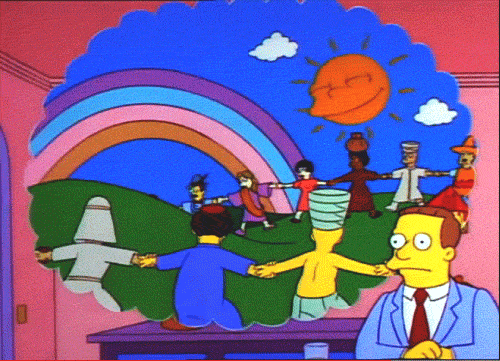
You have a clownishly destructive and selfish take. 🤡
So you have no answer. Cool. Typical.
That’s mainly because you can raise livestock/ruminants on non arable land. But the idea that ranchers should be able to just use any land without proper consideration for the environment is crazy.
My responses to that are:
-
What counts as arable? Can you grow literally nothing on it, or is it just unusable for mass industrial mono-cropping at a scale that competes?
-
IIRC even if ruminant grazing is the most efficient way to produce food on this land, it’s still be a severe environmental net negative as opposed to other non-food uses, namely rewilding. Of course this is true for cash crops as well, and I don’t know how the payoff compares, but a lot of animal agriculture defenders like to use this argument to imply that grazers can just be slotted in on the margins with no downside.
-
Based on the map in the article, a substantial portion of land still goes to farmed livestock feed. Eliminate all of that first and then we can actually see how much of this beef is purely ranched.
Meat eaters do love to champion the most ethical and environmental corners of their supply chain, and I appreciate that, but everyone I know that buys a half cow for their deep freezer from a sustainable local farmer refuses to draw the hard line in the fast food drive-thru. “Conscious” meat exists to justify all meat consumption rather than replace it in the supply chain, from my experience growing up on a small hobby farm trying to produce it.
What you’re describing in your last paragraph is virtue signaling, e.g publicly expressing some moral position to gain approval without actually following through on that moral position. That’s not something to appreciate.
It is extremely commonplace in meat eater circles to virtue signal about ethical meat and then completely ignore that for the vast majority of consumption. This is a huge difference between vegans and meat eaters.
Vegans aren’t virtue signaling, we actually have an understanding of what we believe to be a moral truth; it’s wrong to kill and harm things for your own pleasure, whether that be taste pleasure, sexual pleasure, whatever, and we extend that as far as we’re able to. We actively avoid food that purposefully necessitates killing and suffering.
Meat eaters advocate for some local maximum, like “I can’t give up meat because it’s too tasty, but I can at least avoid factory farming”, and then they’ll go to McDonalds 3 times a week once they’re outside of a discussion with a vegan.
I’m much less frustrated with people who both advocate for and commit to some moral position. If someone abstains from all sources of fast food and factory farming meat and only goes out and handpicks cows to slaughter that they’ve known from birth, that’s better. It’s still wrong to kill something without it’s consent, but at the very least if they’re not virtue signaling they’re at least not trying to deceive others.
If someone abstains from all sources of fast food and factory farming meat and only goes out and handpicks cows to slaughter that they’ve known from birth, that’s better.
There’s zero chance there’s a measurable amount of carnists who actually commit to that. There’s also no way you could produce the amount of meat carnists want to eat without factory farming.
There’s zero chance there’s a measurable amount of carnists who actually commit to that.
Check out the treatbrains in this thread that apparently feel brave and smart by announcing that they want unfettered infinite access to meat treats.
I wish there was a conscious meat fast food option.
Eventually I think lab meat will be cheaper than factory meat. When that happens there will be. Until then fast food will always be made with the cheapest ingredients possible. Until then I’ll be vegan.
I looked through the article and didn’t see any map, so I’m not sure exactly what you’re talking about. My assumption is that this is referring to the Great Plains. The Great Plains is a mix of Prairie, Steppe, and Grassland. All three are arable in the sense that they can grow grass and small vegetation, but would need lots of irrigation and most of this area isn’t close to a water source. You could always drill wells, but that has other problems. The land is good for grazing because the land is only really good at growing small spindly grasses that themselves are mostly dry.
As for eliminating the livestock grazing I would like to point out some figures from the article.
About 2 million cattle, or around just 6 percent of the US herd, graze on public lands. By one estimate, the land provides 1.6 percent of forage eaten by US cattle.
So by this article there are 2 million cattle ranched on this land, or approximately 33 million in the entire US. Prior to 1870, before their mass slaughter, there was an estimated 60 million Bison in the US and Canada. I don’t know much about the differences in Bison and Cows, but they seem like they would serve a pretty similar function in the ecosystem. You could make an argument that they need to be rotated and cycled over the lands better, but removing them would probably be pretty bad as well.
As to rewilding the area, it is rewilded, the article is about public lands which the government isn’t allowing to be used. The wild state of these lands is that it is dry with a sea of grass.
EDIT: I also took a look at several of the sources used, at least in the beginning of the article. The writer is using an appeal to authority logical fallacy to make their argument look more valid, but the sources they are pulling are really not related or are heavily biased as well.
The first link is made in relation to the size of the land being used and is just a document about the raw statistics on the land.
The second link is associated with a comment that the land is leased at “bargin bin prices” and is an opinion piece about how the land is leased too cheaply in that person’s opinion (it really has no other supporting information).
The third link is associated with a comment that the cattle eat or destroy plants consumed by native species. The link leads to an academic article which is a literature review of livestock impacts around the world and the conclusion doesn’t really support what the writer of this article is saying. It looks like they googled something that looked like it would support their opinion and then slapped it in there.
, but they seem like they would serve a pretty similar function in the ecosystem
They do not graze the same and these differences hurt ecosystems
Cows and bison differ in all behaviors — including how they stand, move and graze. Cattle spend almost double the time grazing — 45-49 percent — in comparison to bison — who spend just over a quarter of their time doing so (26-28 percent). And while land needs some amount of disturbance to enable soil turnover, it turns out that the kind of soil disturbance provided by cows trampling over the soil is not the best for preserving biodiversity. And these critical differences in grazing behavior have downstream effects on the ecosystems they inhabit.
[…]
The types of plants bison and cattle prefer to graze on are also remarkably different. Unlike cattle, who prefer to graze steadily on flowering herbs like clover, milkweed and sunflower, free-roaming bison cover a much larger area, grazing on different varieties of grass, such as perennial grasses, but leaving certain areas of the prairie untouched.
https://sentientmedia.org/cattle-ranching-terrible-for-biodiversity/
Which leads to:
Livestock farmers often claim that their grazing systems “mimic nature”. If so, the mimicry is a crude caricature. A review of evidence from over 100 studies found that when livestock are removed from the land, the abundance and diversity of almost all groups of wild animals increases
I started this off as one post, but Lemmy didn’t like it so I’m breaking it into two:
PART 2
Next Article
Let’s start off by observing how this writer subtly plugs their new book…
One of the first articles this writer uses is for this statement:
A review of evidence from over 100 studies found that when livestock are removed from the land, the abundance and diversity of almost all groups of wild animals increases
Looking at the article they reference the conclusion states: (I had to do a lot of manual typing and editing as the source I found did not easily allow copy paste, so please forgive any typos)
Livestock exclusion can benefit the abundance and diversity of multiple trophic levels. However, abandoning grazing in certain environments may not result in an increase to biodiversity and in some instances can cause further loss. For instance, we observed grazing having a positive effect on plant diversity and four studies within our meta-analysis where animal diversity increased with livestock grazing, contradicting the general trend. In all four studies, livestock grazing maintained grassland structure by suppressing woody encroachment, which supports specific animal species. Although the conversion of grasslands to shrublands has been attributed to overgrazing, continued grazing in these systems might be required to minimize shrub cover. In other ecosystems, such as forests, livestock production is some-times described as causing habitat loss because the generated rangelands do not provide the same ecosystem services or functions as the previous native habitat. If there are persistent effects of grazing, restoration to previous conditions can be impractical and instead these rangelands represent novel ecosystems with a different set of species composition and functions… When examined at the species-level the effects of grazing can be significantly magnified relative to community measures. For instance, at risk species may be especially sensitive to livestock relative to other species if grazing reduces the abundance of plant species that they are dependent. The impacts of livestock grazing on conservation are thus dependent on target organism (plants, primary consumers, predators) and goals set by land managers (improving diversity or productivity). The production of livestock has increased significantly in spatial extent since the 1960s and is projected to continue to expand in developing countries, potentially threatening indigenous animal diversity on a global scale. Future increases in climate variability is also expected to threaten food security and increase conversion of land into rangelands. To meet this demand, livestock grazers will continue to be placed on land shared by indigenous animal species, thereby potentially threatening the global biodiversity of herbivores and pollinators. These impacts are expected to be most pronounced in mild climates, such as temperate ecosystems, and are likely to persist after grazers are removed. Identifying the aspects of grazing that most impact animal biodiversity could be used to further develop more effective management practices. For example, some forms of rotational grazing are effective in environments with low abiotic stress and when precipitation less variable. Techniques for mitigation will not erase all the effects of livestock grazing and these negative cascading effects may be an inevitable consequence that society will need to balance with the socioeconomic benefits.
This article while supporting the argument that livestock grazing is not as good as whatever native environment was there before the grazing, for the most part, it’s hardly the glaring result that the writer claims it is and the writers of the academic article even point out that it’s not universally the case. This portion of the article also discusses how a certain amount of grazing can cause an ecosystem to shift from it’s historic setting and create a novel new setting, implying that if grazing ceased the preexisting ecosystem wouldn’t return and instead you would simply destroy what is currently working.
I’m not going to get into the rest of this article as I started to cringe at the discussion of cyanide land mines.
Conclusion: When it comes to environmental journalism too often the people fail to use the articles they reference accurately and instead use the appeal to authority logical fallacy to make their biased, opinion based, points appear more valid. Often times a nugget of their argument is accurate, but as with much of journalism the goal is views, ratings, and book sales rather than a fair and accurate representation of science.
I started this off as one post, but Lemmy didn’t like it so I’m breaking it into two:
PART 1
I want to preface that while I’m not a vegetarian and am ok with eating meat, I’m not fundamentally opposed to the ideas and arguments. My discussion here is to highlight poor journalism and point out very obvious bias. In essence, I’m on you’re side for environmentalism but these articles are terrible.
First off, both articles you linked suffer the same problem as the Vox article. All three are biased and agenda led opinion pieces which the authors filled with journal articles which either have problems of their own or sound like they support their argument, but don’t if you read their sources.
The first article you linked is from a Website called Sentient Media and their about section clearly states their bias, which isn’t inherently bad here. At the beginning they describe regenerative grazing and refute it while linking to various articles about the subject and why it’s stupid. Looking into the sources here it quickly becomes apparent that what they are talking about is the snake oil equivalent of environmental agriculture (essentially Regenerative Grazing is the claim that you can reverse climate change and desertification with a specific style of livestock grazing).
Next this article goes into a discussion attacking biodiversity claims, but doesn’t really seem to understand how biodiversity works.
But one regenerative grazing notion continues to linger — the idea that cattle ranching is a fundamental part of biodiversity, that grasslands across the world and especially in the U.S. need livestock in order to thrive. The presence of livestock and other domesticated animals trampling across grasslands, the argument goes, enhances biodiversity rather than destroys it.
When it comes to biodiversity there are primary, secondary, and tertiary species. When an environment is upset the primary species are the first to rebound but are generally more fragile in the long term while secondary and tertiary are slower, but hardier. For example, if a forest burns down pine trees are a primary succession species which quickly rebounds in just a few years, but oak trees are a secondary or tertiary species which take longer to grow and with enough time will outlast the pines and eventually crowd them out. By this logic the disturbance of an environment increases biodiversity, because it literally makes the environment more diverse. What is lost is that biodiversity is different between ecosystems, for example, the pine forests on the east coast of the US were historically a high biodiversity location because of frequent hurricanes and fires. The fires in these areas were actually essential for the long leaf pine, because the seeds do not sprout until they are heated by a fire. In this sense, these forests are meant to be regularly destroyed by fires and hurricanes to keep their ecosystem the way it is. In recent times humans have fought to prevent these wildfires which has hurt the long leaf pine forests.
Another example here would be an old growth oak forest which hasn’t seen flame or axe for 2000 years. Introducing biodiversity here would utterly destroy the historic ecosystem.
The article later goes on to talk about this topic themselves and how some ecosystems need disturbances for maintaining their biodiversity, but they get a bit… ¿Strange? with it:
The right balance of biodiversity helps an ecosystem regulate itself — keeping itself in balance even when exposed to natural disturbances like windstorms and fires, or droughts and insect infestations. Functioning biodiverse ecosystems can even thrive in the face of some natural disturbances, like periodic fires. Many plant species depend on these fires for reproduction and growth.
Biodiversity isn’t magical, it’s a variable slider dependent on whatever desired ecosystem outcome is. If the desired outcome is an 1900 version of the Great Plains then reduced livestock is a great way to do that. If the desired outcome is a 1600 version of the Great Plains it definitely isn’t. Just like reintroducing wolves to Yellow Stone, it’s all about what the desired outcome is.
The article also brings up a study further refuting the regenerative grazing which discusses the grazing and livestock from the point of climate change, not from keeping the ecosystem healthy. This article, “Livestock Use on Public Lands in the Western USA Exacerbates Climate Change: Implications for Climate Change Mitigation and Adaptation,” makes no statement about maintaining the ecosystem with the bison in mind and is singularly focused on emissions. So the argument which uses this article is at odds with the one they used earlier for biodiversity. One could argue that if the purpose is the eliminate emissions then you also wouldn’t want 60 million free ranging bison in this area either.
Later the article talks about the difference between Bison and Cows as you quoted. The article they link is actually really good, but it’s hard to find a full version of it (paywalls). I read what I could of the conclusion (part of it was clipped off). The take away from what I could read and what others said about this article is that Bison are definitely different and arguably better, but the downsides of cattle grazing are more to do with how cattle grazing is done, not the grazing itself. If cattle were forced to move around the pasture more, forced to be away from water sources and trees (which they seem to prefer unlike bison), and if you forced them to move along more, then as the original article says:
If increased biological diversity facilitated by vegetation heterogeneity is an objective (Fuhlendorf et al. 2006) and domestic livestock are used as the dominant grazer, then the cumulative result of grazing alterations across many pasture units may reduce the impact of increased grazing periods and localized use areas by livestock, thus increasing biological diversity at a landscape scale (Fuhlendorf and Engle 2001).
This journalist opinion piece (https://modernfarmer.com/2016/09/bison-vs-cattle-environment/) seems to reference the article (but their links are dead so I couldn’t confirm), but I liked their point:
So are bison better for the environment? As it stands, often, yes – but that’s less an indictment of ranching cattle than an indictment of the way the cattle industry works.
-
A 2020 study published in the journal Nature Sustainability highlights the immense environmental potential of changing how we farm and eat. Researchers found that if all high-income countries shifted to a plant-based diet from 2015 to 2050, they’d free up enough land to sequester 32 gigatons of carbon dioxide — the equivalent of removing nine years of all those countries’ fossil fuel emissions from the atmosphere. Globally, if we shifted to plant-based diets over that same time period, the land saved could sequester the equivalent of 16 years of global fossil fuel emissions.
I agree, the meat industry should be nationalized along with agriculture and the energy sector.
Unlike agriculture and the energy sector, the meat industry isn’t needed for anything. It should be ended.
More like taxed out of existence
Idk man, have you ever seen how poorly run government businesses like the DMV are?
Do you seriously think the DMV would be ran better as an archipelago of tiny privatized fiefdoms that get gradually gobbled up by the most ruthless one of the bunch?
Ask a Californian how well PG&E manages the state’s power grid.
I’m a Californian. They manage it very, very poorly, up to and including knowingly let people die in preventable local disasters for financial reasons.
No, probably not. But the point remains that the government can be very disorganized, underfunded, and just generally bad at running facilities. If we hand out food production off to the government then we need to take extreme measures to ensure they have adequate funding, competent leadership, and are well insulated from corruption.
But the point remains that the government can be very disorganized, underfunded, and just generally bad at running facilities.
The underfunding generally causes the other problems you already listed.
Again, what are you proposing? The status quo which is destroying the planet? More privatization?
I’m not proposing anything. I literally said “idk man”. I’m just pointing out that “give it to the government” isn’t a one and done solution.
I’m not proposing anything.
That’s a bit of a lie because you keep saying “government bad” and with nothing else said that implies that the status quo that is failing life on Earth is acceptable to you, right now.
I’m just pointing out that “give it to the government” isn’t a one and done solution.
And if you’re proposing nothing else but “government bad” then you’re supporting the status quo, again, by implication.
DAE DMV?
Every time I hear someone complain about the DMV, USPS, etc, I assume they’re being difficult to the workers. Every experience I’ve had with these kind of government services, I read up ahead on what I need, organize my shit, and show up prepared with a smile.
When I do that you see a wave of relief over the worker and they return the smile and respect. You can basically extrapolate the verbal abuse they deal with all day long.
With my secret method(being nice and respectful), every USPS worker I’ve interacted with has either been very friendly, or neutral but relieved.
Leave our brave troops alone goddamnit, be nice to them.
Every time I hear someone complain about the DMV, USPS, etc, I assume they’re being difficult to the workers. Every experience I’ve had with these kind of government services, I read up ahead on what I need, organize my shit, and show up prepared with a smile.
When I do that you see a wave of relief over the worker and they return the smile and respect. You can basically extrapolate the verbal abuse they deal with all day long.
With my secret method(being nice and respectful), every USPS worker I’ve interacted with has either been very friendly, or neutral but relieved.
Leave our brave troops alone goddamnit, be nice to them.
I think a lot of middle-aged-and-older edgelords had so much media exposure to “dae le post office” and “dae le DMV” (especially the “going postal” brainworms that infested the late 90s) that they substituted the reality of using such services for the fantasy they brought in, expect it to happen, and are abrasive assholes to those workers just to make that fantasy feel more real.
You’re probably in an area with a functional DMV. I concede that some states run their DMV pretty well, but California certainly isn’t one of them.
You’re probably in an area with a functional DMV. I concede that some states run their DMV pretty well, but California certainly isn’t one of them.
The conversation is about the meat industry, not about the DMV.
Once again, exhaustively, since you brought it up here, what are you proposing for the California DMV? More privatization? If you say “government bad” and just sit there congratulating yourself, you’ve said nothing useful at all and are still supporting the status quo by default.
Well when you try to run a service that is by definition unprofitable, “like a business,” the only way to hit the financial metrics is to cut salary and headcount. This obviously leads to shitty service. That said in states like New York and Illinois the DMV is actually pretty well run, though the number of locations and hours of operation leaves something to be desired.
It’s just a question of resources. Typical neoliberal strategy, strip budgets down to the bone, take out half the marrow, when the whole thing crumbles point at it and say “look how shitty this is, we need to privatize it!”
Austerity is theft
government businesses like the DMV
the DMV is not a business.
You missed the message for the word. Call it whatever you need to, facility or what not. The point is that it’s awful in places like California.
The point is that it’s awful in places like California.
You seriously think privatizing California’s DMV would be an improvement?
in places like California
so a government can run a DMV well? if such a thing is specific to some places and not others, you cannot make it a general rule, can you?
I can tell that person is probably not in California (or is maybe some kind of MAGA sucker from the Central Valley) if they complain about the California DMV and want it privatized like the circus fire that is the state’s PG&E monopoly.
I’m certainly not a MAGA proponent. I didn’t say I wanted it privatized. It was meant to be an example of the disaster that governments can make of something relatively simple. We can’t afford that with our primary food supply. So if it was handed off to the government, extreme measures would need to be taken to ensure it’s properly funded, managed by competent and qualified people, and well insulated from corruption. It’s not as simple as “just let the government do it”.
It was meant to be an example of the disaster that governments can make of something relatively simple.
You claim you’re not calling for privatizing the DMV. So what are you calling for?
If you say “increased funding and more staffing with expanded benefits” then I will nod to that.
We can’t afford that with our primary food supply. So if it was handed off to the government, extreme measures would need to be taken to ensure it’s properly funded, managed by competent and qualified people, and well insulated from corruption. It’s not as simple as “just let the government do it”.
The current status quo is failing and more than that is cumulatively destroying the planet.

Yes, actually. The DMV in Washington is surprisingly well run. But the California DMV is a nightmare that we cannot allow to happen with our food supply. Ultimately it’s not a simple handover and there would need to be abundant safeguards in place to ensure our food supply is managed competently and insulated from corruption.
Do you think that that is just axiomatically true?
Unless fake or lab meat is cheaper or just as expensive, this won’t change. Except maybe if costs go higher than what is considered profitable.
Fake meat is cheaper, it’s just not heavily, heavily, subsidized by your tax dollars.
There was a video from a rancher floating around in like 2020 where he talks about the meat industry. There are billions of dollars every single day flowing through the meat industry. It goes primarily to the processing facilities and they use it to create surplus and waste to drive the prices down before making huge orders. The process hurts everyone except the ultra-wealthy.
Bingo
Fake meat is already cheaper. We dont need lab meats. Beans, seitan, tofu, tempeh, tvp, etc.
All we need is to start serving exclusively plant based meals in schools, and almost all of the next generation will adopt it.
I can usually get ground beef cheaper per pound than I can get tofu. When they both on sale they’re the same price at my store.
deleted by creator
It’s considerably cheaper in the UK, like half or a third of the price sometimes.
Most of the US is empty and fertile unlike other parts of the world, land use is not really the biggest issue with meat farming
Empty… to humans but not to native species that living there. Grazing still affects those ecosystems there. From the article
As the cattle graze, they tend to disrupt ecosystems and do a lot of damage to the land. They eat or destroy plants consumed by native species, like turtles, which can lead to biodiversity loss. Their manure pollutes rivers and streams, and as they move about, they erode soil.
[…] analyzed decades of BLM data and found that about half of the acreage it oversees that has been assessed fails to meet the agency’s own land health standards (in Nevada, it’s an alarming 83 percent). PEER points to livestock grazing as the primary source of land degradation.
There’s an opportunity cost in using all that land. If we let land go back to its natural state we can sequester quite large amounts of carbon
A 2020 study published in the journal Nature Sustainability highlights the immense environmental potential of changing how we farm and eat. Researchers found that if all high-income countries shifted to a plant-based diet from 2015 to 2050, they’d free up enough land to sequester 32 gigatons of carbon dioxide — the equivalent of removing nine years of all those countries’ fossil fuel emissions from the atmosphere. Globally, if we shifted to plant-based diets over that same time period, the land saved could sequester the equivalent of 16 years of global fossil fuel emissions.
What’s the environmental cost of growing all that soy, corn and oats for an US wide vegetarian diet?
A lot less than farming meat which requires all the cost of growing that and ensuring the animals are fed and watered until slaughtering.
From the article
But not all agriculture is equally land-intensive. Meat-heavy diets require far more land than low-meat and vegetarian diets.
But not only that it also requires crop land for plant-based diets. From a different source
If everyone shifted to a plant-based diet we would reduce global land use for agriculture by 75%.
[…]
If we would shift towards a more plant-based diet we don’t only need less agricultural land overall, we also need less cropland.
Sounds like you didn’t even read the first paragraph of the article
Although the article talks about biodiversity, people may have other concerns and i thought i would note them
Theme parks? Meat-themed theme parks!
This is the best summary I could come up with:
“The problems are huge, sprawling, and major,” said Erik Molvar, a wildlife biologist and executive director of the Western Watersheds Project (WWP), the group that sued numerous federal agencies for failing to preserve the habitat of the Mojave desert tortoise and 77 other species.
WWP alleges that for decades, the US Bureau of Land Management (BLM) and other agencies have violated an agreement they signed in 2001 that forbids cattle grazing in a part of Nevada’s Gold Butte National Monument in order to protect the desert tortoise, whose population has plunged since the 1980s.
The permitting program is costing the federal government tens of millions of dollars annually to administer, all while giving cattle ranchers a deep discount on public lands.
Even worse, the federal government spends millions annually on its “Wildlife Services” division, which kills wild animals it deems a threat to grazing livestock.
The programs that subsidize the beef industry represent some of the most striking examples of America’s tradition of “agricultural exceptionalism” — giving farmers and ranchers special treatment, like sweeping exemptions from critical environmental, labor, and animal welfare laws.
Agribusiness also benefits from getting large swathes of the West to itself, illustrating a simple fact of land use in America: Contrary to the famous Woody Guthrie song, much of it isn’t for you and me — it’s for the meat industry.
The original article contains 1,123 words, the summary contains 225 words. Saved 80%. I’m a bot and I’m open source!
The autotldr isn’t great here, focusing on one example and missing quotes about the broader picture like these:
All told, a staggering 41 percent of land in the continental US is used for meat, dairy, and egg production. Globally, it’s more than one-third of habitable land. Much of it was once forest that’s since been cut down to graze livestock and grow the corn and soy that feeds them.
not all agriculture is equally land-intensive. Meat-heavy diets require far more land than low-meat and vegetarian diets.
A 2020 study published in the journal Nature Sustainability highlights the immense environmental potential of changing how we farm and eat. Researchers found that if all high-income countries shifted to a plant-based diet from 2015 to 2050, they’d free up enough land to sequester 32 gigatons of carbon dioxide — the equivalent of removing nine years of all those countries’ fossil fuel emissions from the atmosphere.
Woody Guthrie sucks
What a stupid and annoying title, trying to imply that I am on some team that is not the “meat industry” team. I eat meat and I have nothing against ranching.

How do you know someone’s a carnist? Don’t worry, they’ll tell you.
Planet’s cumulatively getting desertified and poisoned by industrialized factory meat production and all of its concentrated waste and carbon output, but fuck that, you got yours.

“i put gas in my car, i support oil spills!”
You shouldn’t and you should be
What?
Because America is so short of land…
High land use harm native species and has great environmental consequences as described in the article
There’s more to consider than just how much land is available to humans
America isn’t a place.
basically everyone eats meat. If it’s making meat it’s broadly serving the people.
Deforestation is not serving the people
High GHG emissions is not serving the people
High cruelty to non-human animals is not serving the people
Etc.
Yes. It is. This meat isn’t going into dumpsters. It’s largely sold and people love the cheap prices and do not care about any of that in mass
basically everyone is experiencing record heat waves every summer now
Yeah, and neither deforestation nor meat make a dent in that. If you want to end global warming, end the use of fossil fuels.
The statistics they parrot about nothing emissions are largely bullshit and even if everyone stopped eating meat tomorrow we’d still have all the same problems we do now.
You can’t offset global warming with forests, what humans are doing is an order of magnitude larger than what nature is equipped to handle.
Nor is this even relevant at all, because even fossil fuels serve the average person. There’s a reason we keep using them.
The statistics they parrot
That tells me everything i need to know, you cant be convinced with science.
People who don’t understand that all methane emitted by cows must come from carbon gathered by plants and as a result contributes near net zero to the long-term global warming trend are the people who don’t understand science.
CO2 is a much less potent green house gas than methane. Ruminants converting converting CO2 to methane causes quite a great deal of warming because methane and CO2 are not created equal. As long as we have large amounts of cattle, we’ll keep creating higher methane concentrations
It’s about a 20x potential over the course of 100 years. The problem is, the sheer size of emissions from fossil fuels dwarfs any contribution cow methane gives to the atmosphere.
Like, methane in the atmosphere is really high right now, but it’s not because of cows, it’s because of fracking in Canada and the United States, which commits an order of magnitude or methane than cows ever could.
It would be like standing in a room with a raging inferno and pointing to a matchstick and say look, there’s our problem.
Cow-warming has a bunch of problems that mean it’s never going to contribute to being a significant factor in global warming.
It’s self-correcting. Eventually methane is going to reach a certain point of equilibrium where the amount that’s coming back into CO2 is equal to the amount being emitted and now you’re going to be at a steady state again.
It’s relatively small scale. Cows farting is not really that big of a deal in the grand scheme of things when we have factories producing millions of tons of carbon emissions.
It’s easily fixed. There’s lots of medications and other things you can do to cows to make them stop emitting methane, if it ever becomes one of our most significant problems it will be easily and quickly solved much like CFCs were.
Carbon emissions from fossil fuels have a bunch of traits that make it particularly nasty.
It’s additive. Everything we admitted in 1960 is going to be around and heating the planet for 100 years yet
It was growing exponentially. Humanity has been emitting an absolutely mind-boggling amount of carbon. We’ve gone from what? 300 parts per million to 400? And the amount of carbon we’re emitting every year now is higher than it’s ever been, and every single year worth of emissions just adds on to the problem pile that’s going to keep on getting worse for the next 100 years.
It’s not easily undone. That carbon is never going to turn back into oil unless humanity goes out of our way to do it, and it’s incredibly difficult to do. You would need the sum energy usage of humanity from the 1930s to today recreated and wasted on pulling the carbon back out of the atmosphere and sticking it in the ground.
Emissions from cows undo themselves in 20 years, entirely offset themselves through plant growth, and are easily massively reduced any change in our lifestyle in just a couple of years if we really wanted to as a society, with next to zero change in our lifestyle.
They aren’t comparable problems and all you’re doing by pointing at cows and acting like they’re causing global warming is distracting from the real problem.
It’s hardly small. It’s enough to make us miss Climate targets even if fossil fuels were eliminated today. We have to tackle both
To have any hope of meeting the central goal of the Paris Agreement, which is to limit global warming to 2°C or less, our carbon emissions must be reduced considerably, including those coming from agriculture. Clark et al. show that even if fossil fuel emissions were eliminated immediately, emissions from the global food system alone would make it impossible to limit warming to 1.5°C and difficult even to realize the 2°C target. Thus, major changes in how food is produced are needed if we want to meet the goals of the Paris Agreement.
https://www.science.org/doi/10.1126/science.aba7357
Further for the bit about feed addatives, those don’t do as much as you’d think because the touted emissions reductions are only looking at feedlot emissions and not overall emissions
There, algae feed additives can be churned into the cows’ grain and soy feed. But on feedlots, cattle already belch less methane—only 11 percent of their lifetime output.
All told, if we accept the most promising claims of the algae boosters, we’re talking about an 80 percent reduction of methane among only 11 percent of all burps—roughly an 8.8 percent reduction total
The earth doesnt produce carbon at all, so why do you think things have getting warmer? It matters what form that carbon takes. Carbon in the form of a plant is a solid, and even works to pull carbon dioxide from the atmosphere. Carbon in the form of methane has a much stronger greenhouse gas effect than regular carbon dioxide. Which is where those bullshit statistics you hate come from, it’s carbon that was solid and is now a greenhouse gas. Same shit as fossil fuels, its not new carbon being made, its just solid carbon being turned into gas.
The earth doesnt produce carbon at all, so why do you think things have getting warmer? It matters what form that carbon takes. Carbon in the form of a plant is a solid, and even works to pull carbon dioxide from the atmosphere. Carbon in the form of methane has
Jesus Christ you’re ignorant.
The carbon in plants comes out of the atmosphere.
Cows eat those plants and processes in their stomach turn it into methane.
Methane in the atmosphere turns back to carbon within 20 years.
Plants then reabsorb that carbon when they grow to feed the cows.
It’s literally a constrained cycle. You can’t increase the amount of carbon in the atmosphere through cows and plants. You have to actually find carbon that is in a stable solid form and then put it into the atmosphere when it otherwise wouldn’t be.
In other words, you have to mine coal or pump oil.
Plants and cows have absolutely nothing to do with it.
Where do you think oil and coal came from?
The earth doesnt produce carbon at all What?
There are hundreds of fully natural processes that emit carbon that have nothing to do with Humans. Volcanos, Plant Respiration, other mammal respiration, forest fires, lime stone erosion, natural decomposition of organic matter, meteorites burning up in the atomosphere, lightning strikes, etc etc. Where do you think the carbon in the earth came from? God? Well before humans existed there were ice ages and periods of higher carbon dioxide in the atmosphere, as well as higher oxygen. That statement by itself shows you don’t’ really have a good grasp of what climate change is, nor what is causing it.
None of those things create new carbon, its just changing form of existing carbon.
@bioemerl @usernamesAreTricky @blazera lol. The problem is humans keep artificially up a cow population to satisfy their apetite for meat. One cow’s emissions is fine, 20 billion cows’ emissions is not, regardless of the plants capturing CO². Nature is artificially out of balance.
No, nature is out of balance because we are pulling carbon deep out of the Earth and emitting it into the atmosphere.
No number of cows is going to cause an imbalance in the carbon cycle, because it doesn’t matter how many cows you have, they must be fed by carbon pulled out of the atmosphere.
@bioemerl @usernamesAreTricky @blazera wrong. The more cows releasing gas, the more saturated becomes the atmosphere. One thing is the carbon they eat and a very different story is capturing it back, or do you think the carbon problem from the oil industry is happening just because we drill the oil out?
Someone hasn’t heard of Buddhism or India





